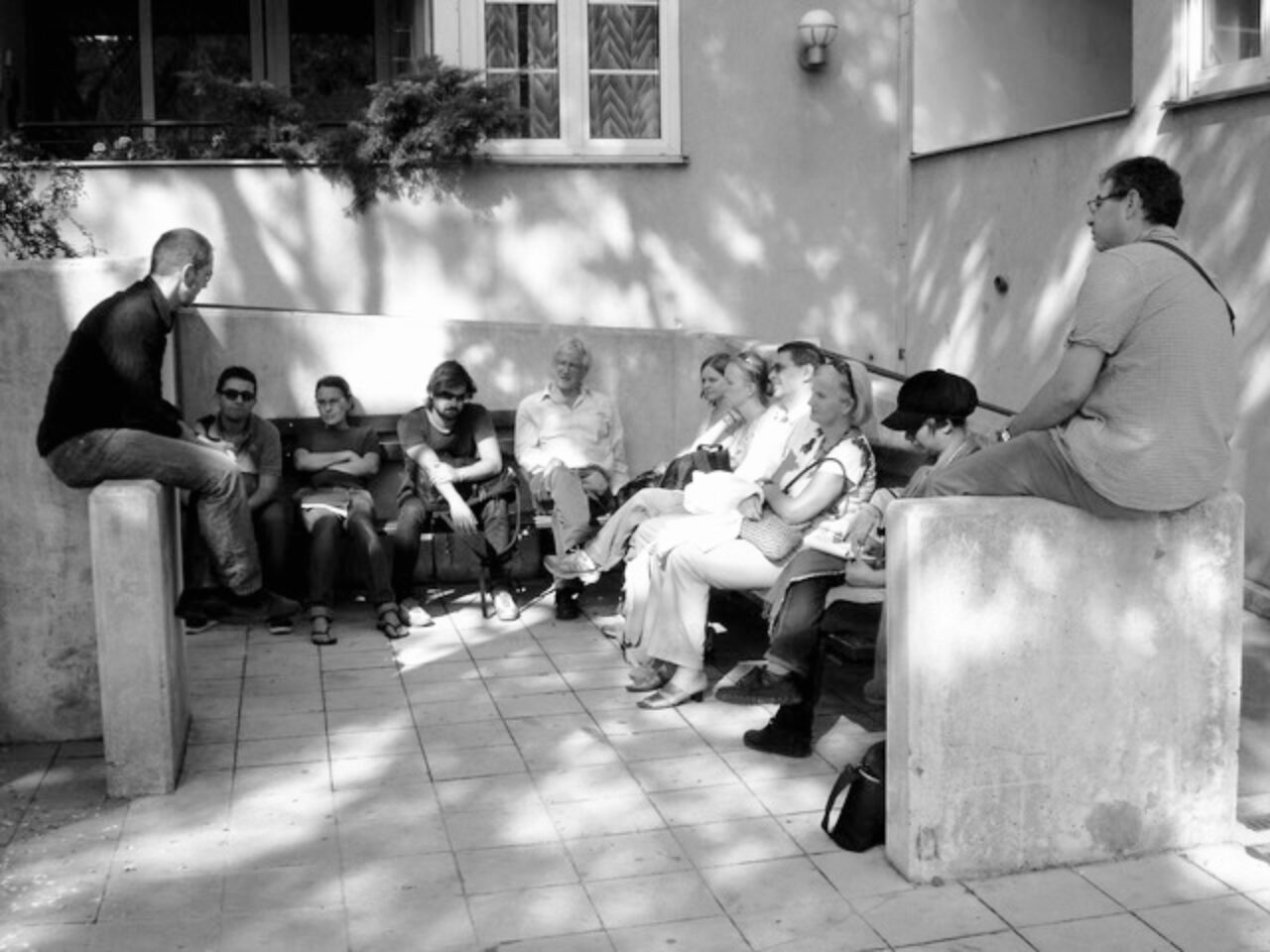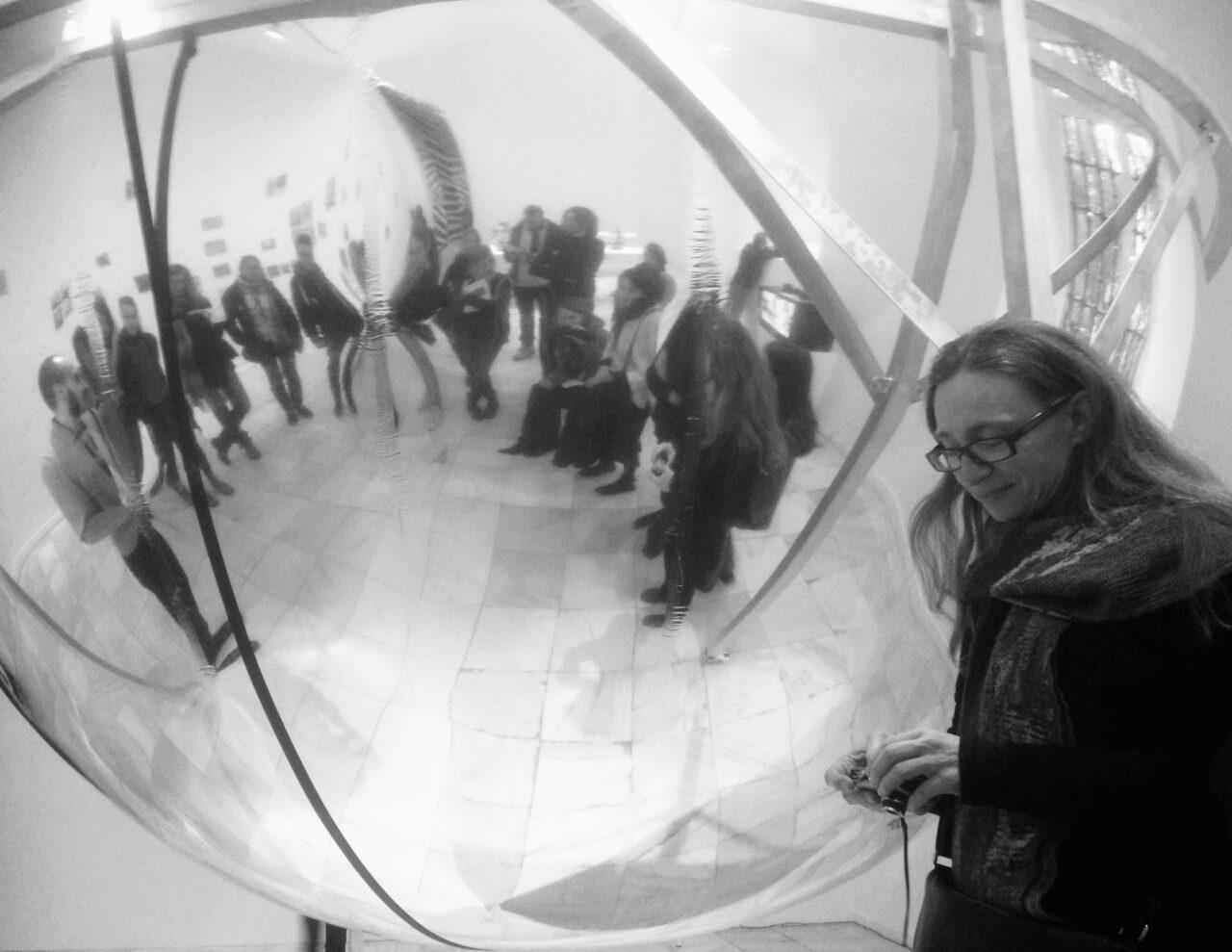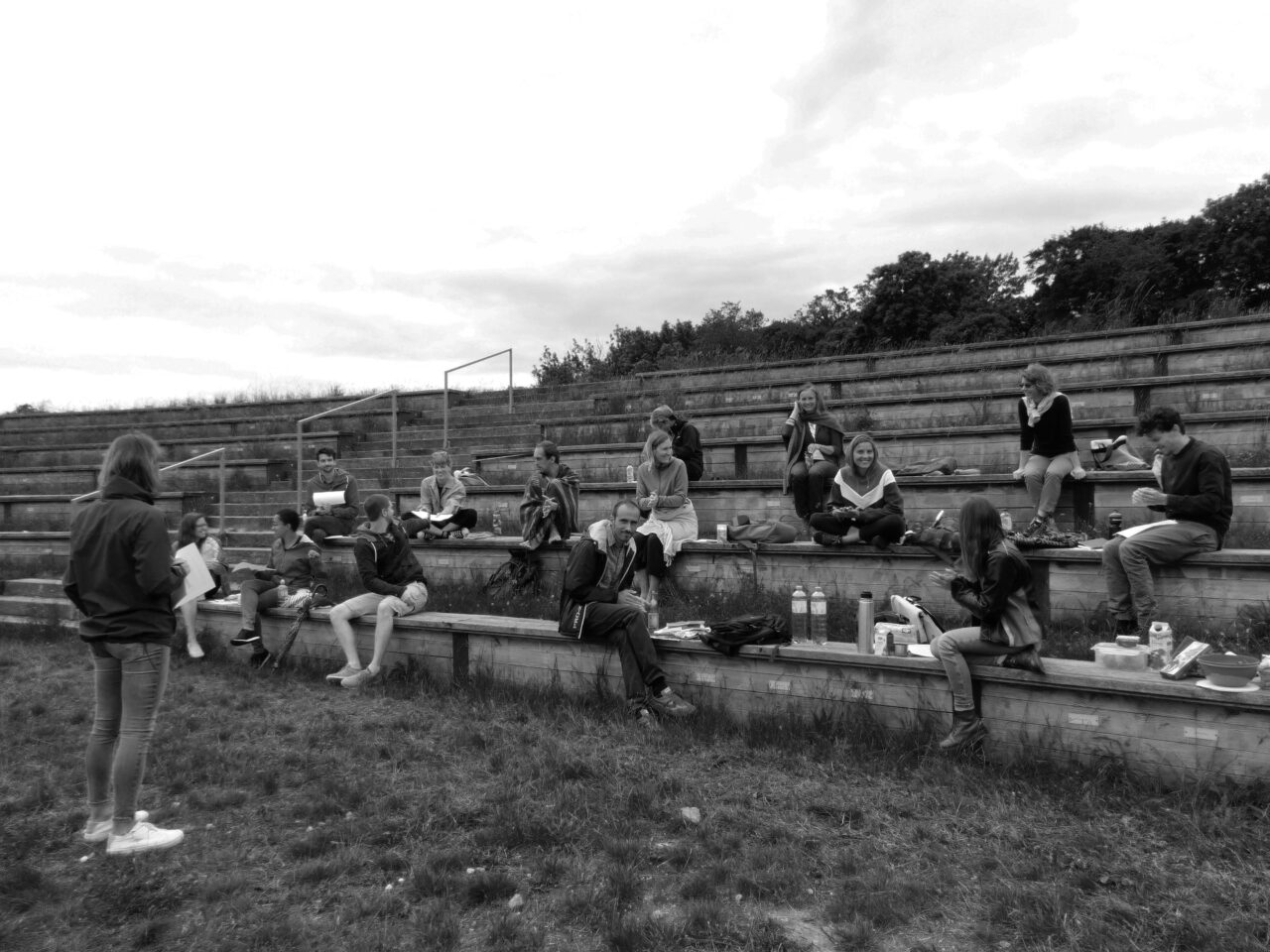About Us
The Interdisciplinary Centre for Urban Culture and Public Space, is a research centre, located at the Faculty of Architecture and Planning, TU Wien.
Focusing on public space and everyday life, we pay special attention to urban cultures. The Centre’s research and teaching combines know why (urban research, theory) and know how (urban planning, urban design, practice). Both in local, European, as well as international contexts.
We aim at combining and synergizing existing potentials in the fields of urban culture and public space – within the framework of the given teaching and research foci.
The focus of our frame of reference is to critically analyze and interpret recent urban development patterns. We examine urban routines in the socio-historical context of the 20th and 21st century.

Collaborative formats
We have developed a variety of transdisciplinary collaborative formats with local associations, public institutions, and third sector actors.
Some of these formats include spatial cinematography, public television and incomplete mapping. Others – alongside more traditional forms of empirical urban research – visual ethnography, as well as participatory action research.
Additionally, we use quantitative research to support our qualitative social and political inquiries. We believe that contact with the urban field is essential for any urban planner, designer, or sociologist.

Transdisciplinarity
The Centre engages in semester-long alliances with local faculty. Thus, we promote a situated, reflexive and context-sensitive generation of academic knowledge in co-production with local communities and urban residents.
In terms of research and thesis writing, the Centre offers formats that support peer-to-peer learning and collaborative research ethics – both among graduate, master’s, and undergraduate students as well as within these groups.
Periodically, international visiting scholars and additional staff from different disciplines join the Centre’s team to work on a range of projects.
Our working languages are English, German, Spanish and French.
Our Goal
We believe we can foster an accurate sense of everyday life, its possibilities and shortcomings in today’s cities. Thereby we connect know why (urban research, theory) and know how (urban planning, urban design, practice).
Our goal is to consider lived space as an important entry perspective into the study of the urban field in the context of the ever-changing patterns of capitalist urbanization.
We focus particularly on public space and everyday life, with special attention to urban cultures.
Everyday Life
Just what is “public” about public space? Can culture contribute to urban life by stimulating processes of social exchange and social debate?
Public spaces are dynamic social processes. Hence, relational spaces with built expression. As such, the micro, meso, and macro patterns of change can be analyzed in lived space where they intertwine.
Therefore, we seek to understand public space as a space where ambivalences prevail – social inequality, spatial injustice, unequal development.

Our History
The Interdisciplinary Centre for Urban Culture and Public Space was founded on December 1, 2008. It has made it its mission to develop new perspectives about everyday life and public space for the curricula of the Faculty of Architecture and Planning at TU Wien .
Between March 2009 and September 2021, the Centre hosted a Visiting Professorship.
Institutionalization Process
In the early years, the Centre was supported by the TU Wien working group, a local panel of experts. With the establishment and expansion of the Centre’s International Advisory Board, which was mainly composed of former visiting professors, the panel was subsequently dissolved. Read More about our Structure here.
Furthermore, in 2019, TU Wien incorporated the Centre into its official organizational structure as part of the faculty’s innovative future lab until 2023. Since 01.01.2024 the centre returned as 9th research unit (E280-09) to the faculty’s Institute of Spatial Planning with which it has been affiliated since its beginnings in 2009.
Brand New Venia Docendi
In 2021, the Centre was associated with a brand new Venia Docendi at TU Wien in the field of Internationale Urbanistik (Urban Studies). In the same year, the Centre began developing new content for the current curriculum of the Spatial Planning program and intensified internal collaboration to establish new programs at the bachelor’s, master’s, and doctoral levels.
International Exchange
Between 2008 and today, the Centre’s team has been involved with a large number of international exchanges in the field of research-based teaching and teaching-oriented research. They included project proposals, strategic Erasmus partnerships and teaching mobilities. Besides other forms we also engage in Scientific & Technological Cooperations and Cotutelle agreements.
This has consolidated the Centre’s profile as an international player within the Faculty of Architecture and Planning at TU Wien. Our local team collaborates with international researchers and teachers.
